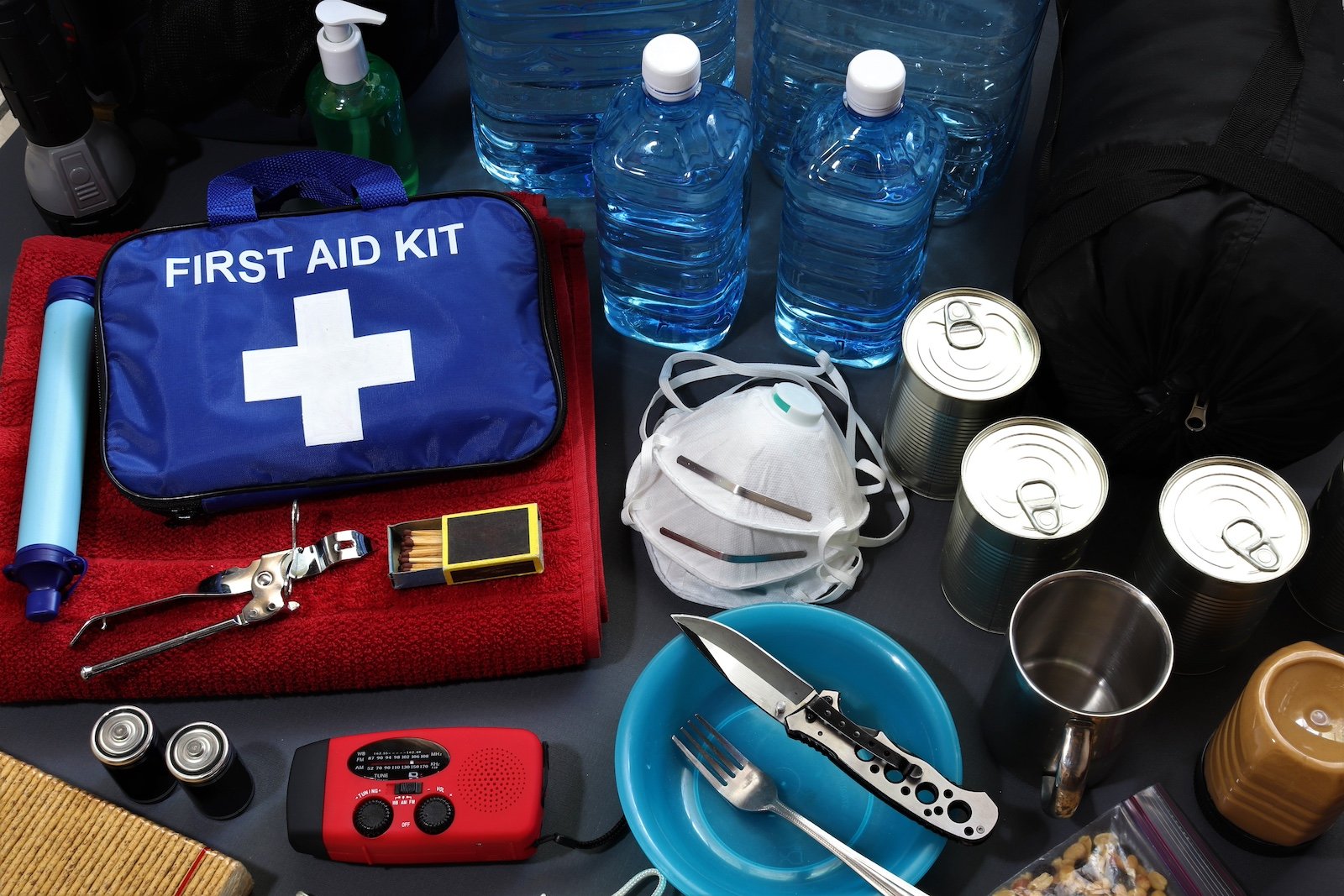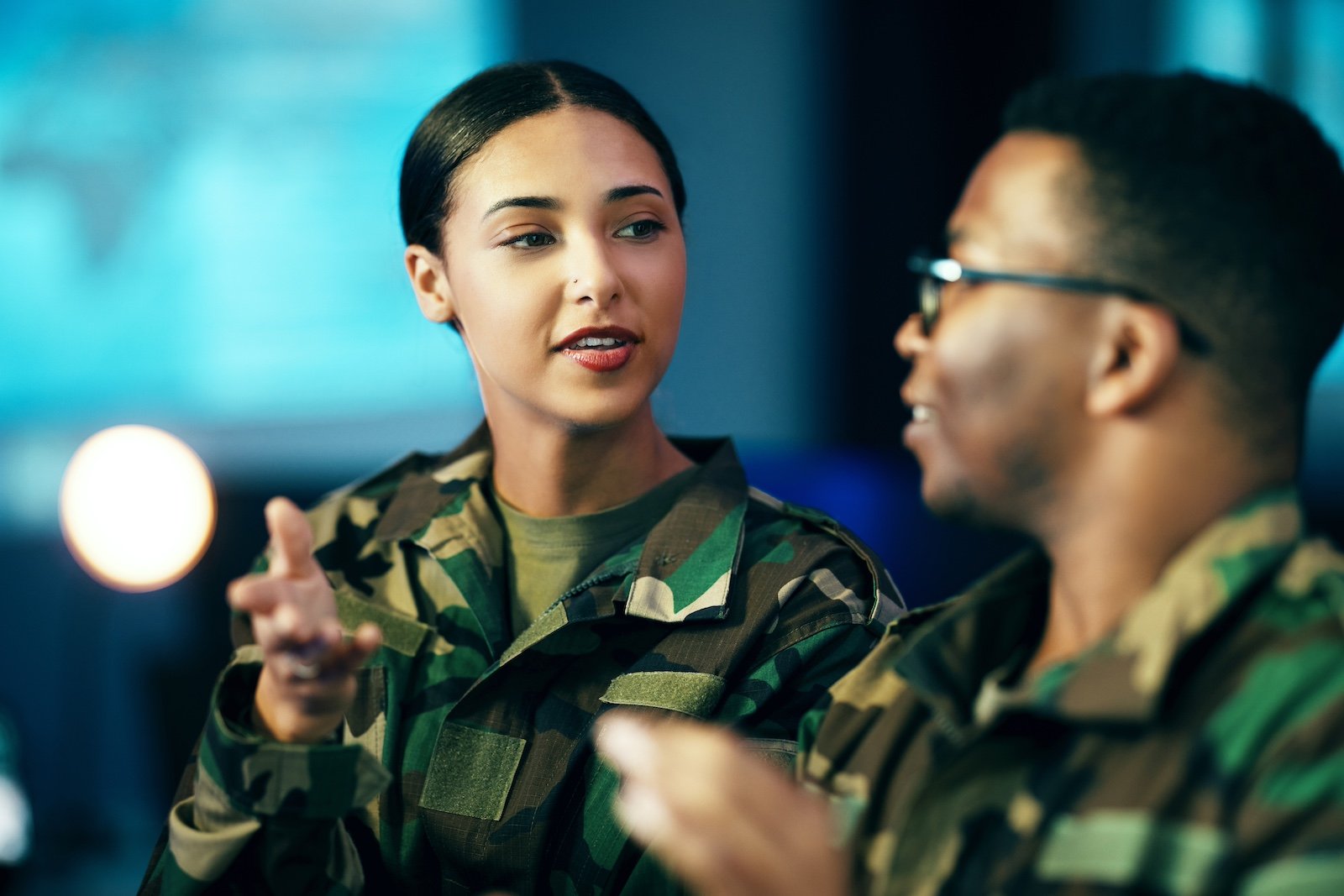Military service leaves a lasting imprint on an individual’s behavior, habits, and demeanor. Whether you’re curious about a friend’s background or simply interested in identifying veterans, there are several subtle and not-so-subtle indicators that can signal someone’s past in the armed forces.
Here is a comprehensive list of signs that might suggest a person has served in the military.
Punctuality

Military training instills a strong sense of punctuality. Veterans are known for their commitment to being on time, often arriving early to appointments and meetings. This habit reflects the importance of timing in military operations, where delays can have serious consequences.
Neat and Orderly Appearance

Former service members often maintain high grooming standards. Clean-shaven faces, well-maintained hair, and polished shoes are common. Their clothing tends to be well-fitted and ironed, reflecting the pride they take in their appearance.
Mastery of Acronyms and Jargon

Veterans frequently use military-specific acronyms and jargon in their speech. Terms like “AWOL” (Absent Without Leave), “PT” (Physical Training), and “NCO” (Non-Commissioned Officer) are part of their everyday vocabulary, which can be a clear indicator of their military background.
Exceptional Posture

Military personnel undergo rigorous physical training that emphasizes proper posture. As a result, many veterans exhibit an upright stance, whether they are sitting, walking, or standing, demonstrating a level of poise and discipline that is often distinctive.
Love for Structure and Routine

A structured routine is central to military life. Veterans often carry this love for order into their civilian lives, thriving on schedules and sometimes feeling uncomfortable with sudden changes or unpredictability.
Physical Fitness

Maintaining physical fitness is crucial in the military, and many veterans continue this practice long after their service ends. Regular exercise, a disciplined diet, and an active lifestyle are common among those with a military background.
Attention to Detail

Attention to detail is important for service members, as minor oversights can have significant consequences. This trait often carries over into civilian life, with veterans being meticulous in their work and personal lives.
Quick Decision Making

Military training emphasizes the ability to make quick, decisive decisions under pressure. Veterans often display this skill in civilian life, making them effective problem solvers who can think on their feet.
Strong Sense of Camaraderie

The bonds formed in the military are strong, and veterans often maintain a deep sense of loyalty and camaraderie with their peers. This can translate into strong, supportive relationships in their civilian lives.
Minimalist Living

Due to the necessity of carrying only essential items, many veterans adopt a minimalist lifestyle. They prioritize functionality and efficiency over excess and clutter, a habit that stems from their time in the service.
Proficiency in First Aid

Military personnel receive extensive training in first aid and emergency medical procedures. As a result, veterans are often the first to respond to emergencies, administering aid calmly and efficiently.
Display of National Pride

Veterans often exhibit a deep respect for their country’s symbols, such as the national flag. It’s common to see flags displayed at their homes or affixed to their cars, reflecting their enduring patriotism.
Scanning Surroundings

Situational awareness is critical in the military. Veterans are trained to constantly scan their surroundings, remaining vigilant and alert to potential threats. This behavior often persists in civilian settings.
Direct Communication

The need for clear and efficient communication in the military results in veterans often being straightforward and to the point. This directness can be a notable characteristic of their interactions.
Use of “Knife Hands”

“Knife hands” is a gesture used in the military where all fingers are extended and the hand is pointed like a knife. This gesture is used for emphasis and can be a telltale sign of a military background.
Preference for Routine

The military’s structured environment fosters a preference for routine and order. Veterans often find comfort in established schedules and may struggle with sudden changes.
Resourcefulness

Military training emphasizes making the most of available resources. Veterans are often incredibly resourceful, able to improvise and adapt to solve problems efficiently.
Respect for Authority

A strong respect for hierarchical structures is ingrained in military personnel. This respect for authority often extends into their civilian lives, influencing their interactions and professional conduct.
Calm Under Pressure

The ability to remain calm and focused in stressful situations is a hallmark of military training. Veterans often become the steady hand during emergencies, displaying composure when it’s needed most.
Extensive Travel Knowledge

Many military personnel are stationed in various parts of the world, giving them a broad understanding of different cultures, customs, and languages. This global perspective often influences their interactions and worldviews.
Using Tabasco on Everything

Military food can be bland, leading many service members to develop a habit of using hot sauce, like Tabasco, to add flavor. This preference can persist long after their service ends.
Early Rising Habit

The military day often starts early, with wake-up times before dawn. Veterans frequently maintain this habit of waking up early, utilizing the quiet morning hours for exercise, planning, or work.
Strong Work Ethic

The discipline and work ethic required in the military often translate into civilian careers. Veterans are known for their dedication, reliability, and willingness to go above and beyond in their professional roles.
Detailed Planning

Military operations require extensive planning and preparation. Veterans often bring this skill into their civilian lives, demonstrating meticulous planning and organization in personal and professional tasks.
Multi-Tasking Ability

The need to manage multiple tasks simultaneously in the military fosters strong multi-tasking abilities. Veterans are adept at juggling various responsibilities efficiently and effectively.
Leadership Qualities

Many veterans have leadership experience, having held positions of responsibility during their service. They often exhibit strong leadership qualities, such as decisiveness, accountability, and the ability to motivate others.


